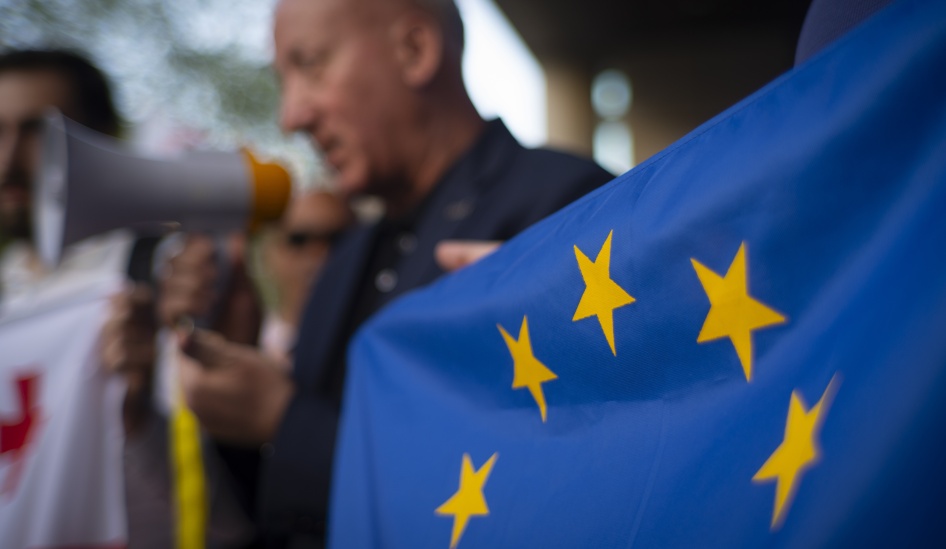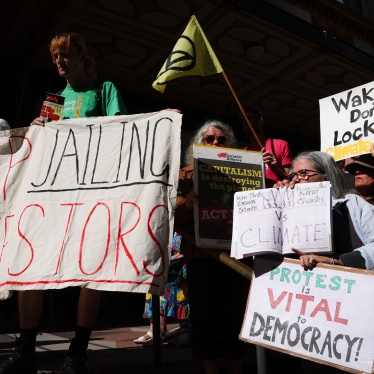The European Commission’s annual Rule of Law Report 2024 glosses over serious threats to civil society in the European Union, sending a message that the EU doesn’t take the decline of civic space in its member states seriously enough.
In the report, published July 24, the commission recognizes the essential role civil society plays, but despite mounting evidence, fails to identify intimidation and interference with the work of civil society organizations as a core challenge.
In France, civil society is curtailed by regulations, threats of cuts in state funding, and the dissolution of associations. Excessive force is often used to police protests and environmental activists face stigmatizing rhetoric and harsh penalties for their actions. Although the report praises the financial health of civil society organizations in France, it notes concerns about subsidy withdrawal and stigmatization but does not address these issues in its recommendations.
In Greece and Italy, civil society organizations, especially those working on migrant and asylum seekers’ rights, are heavily obstructed and subjected to criminalization and harassment. The report touches on some of these issues but does not address their full range or severity or direct specific recommendations to the government.
In Hungary, repressive legislation and the vilification of civil society are used to stifle civic engagement, creating a climate of fear and censorship. Even though the report mentions these issues, the commission settles for a generic recommendation to remove obstacles affecting civil society organizations and foster a safe and enabling civic space, instead of providing clear calls for action.
Civic space in Germany has diminished over the past year due to restrictions on protests and assemblies. The commission notes that Germany has not made progress in implementing new regulations to clarify the tax-exempt status of nonprofit organizations, which can negatively impact donations and public funding access. However, its recommendations do not address broader restrictions, such as pre-emptive detention of protesters and blanket protest bans.
The EU’s failure to recognize the significance of the problems facing civil society comes at a time when repressive legislation and intensified crackdowns are on the rise in its surrounding neighborhood. Those governments will only be emboldened by EU inaction at home.
The incoming European Commission should be more courageous in standing up for civil society within the EU to help “promote and protect an enabling civic space” at home and abroad.








